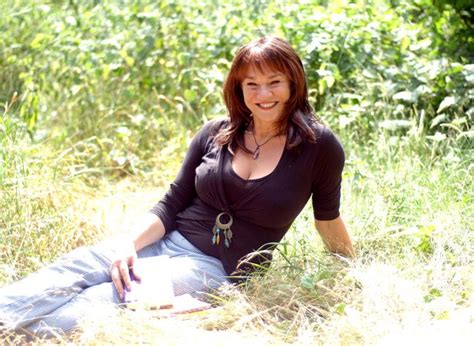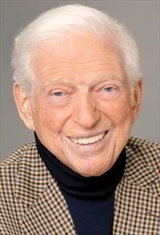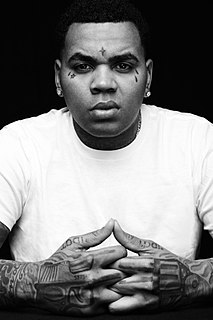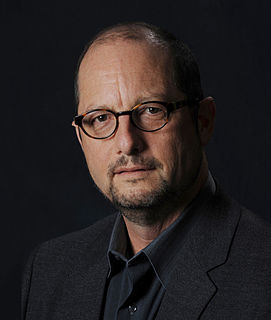Top 127 Dalai Quotes & Sayings - Page 2
Explore popular Dalai quotes.
Last updated on April 19, 2025.
It turned out this man worked for the Dalai Lama. And she said gently-that they believe when a lot of things start going wrong all at once, it is to protect something big and lovely that is trying to get itself born-and that this something needs for you to be distracted so that it can be born as perfectly as possible.
Most people would say "Ah, Mahatma Gandhi, what a wonderful man, Mother Teresa, maybe Martin Luther King Jr., Nelson Mandela, Dalai Lama." And when you look at those people it's not the macho, aggressive, successful people, we may envy them, their bank balances and kind of thing, yes and for being successful. But we do not revere them.
The word 'heart' can refer to an emotional bond between people, and also to the precious faculty of empathy, an 'open heart', which means sharing the feelings of another and includes an outflow of goodwill towards our fellow humans and all life forms. This, of course, is what the Dalai Lama refers to when he says "my religion is kindness", and is closely related to the ability to feel compassion.
[The Dalai Lama] told me some years ago, "I've made every concession to China, and I've been as open and tolerant as I could, and still things get worse in Tibet." If you look at it from one point of view, as he himself says, his monastic position of forbearance and nonviolence hasn't reaped any benefits. And yet, he's thinking in terms of the long term, of centuries.
The Tibetan religion has a past. And furthermore it has such an appeal. There again young people today are drawn to Buddhism and to Tibet. It's not only because of the Dalai Lama. It's because of what Tibet represents. There is a vast reservoir of knowledge, of mystical knowledge, which can be found in Tibet.The Chinese shouldn't be afraid of that really. They have other means of survival.
We need a sense of the oneness of the 7 billion human beings alive today. When I meet people, I don't think about being different from them, about being Tibetan, Buddhist or even the Dalai Lama. I only think about being a human being. We all share the potential for positive and negative emotions, yet one of our special qualities is our human mind, our intelligence. If we use it well we'll be successful and happy.
Now everyone's main objective of taking photographs is to have a photograph for Twitter or Facebook. I find that troubling. If you have an opportunity to meet the Dalai Lama, don't work out your camera or iPhone issues. Sit and a listen to what the man is saying, because nine times out of 10, you're not going to look at that photo. You're not going to look at the video. As a photographer, I don't carry a camera. I have my iPhone, but I don't carry a camera. I want to live.
If you'd asked me some years ago, I would have said [Dalai Lama] is an extraordinarily compassionate, clear-sighted, calm human being. But now, I'm more convinced than ever that his political positions as well as his spiritual positions arise out of such precise and realistic thinking that they're extremely sound.
It's impressive that a man [Dalai Lama], on the day after his Nobel Prize was announced, in October, 1989, said to me, "I really wonder if my efforts are enough?" Most of us, if we just won the Nobel Prize, would think this is vindication, or at last there's a chance for Tibet. He's the rare person who thinks, as a Buddha would, "I don't know if I've done enough, I don't know if I will do enough."
They [Chinese] will need a sympathetic intercessor with other people in the world to avoid conflict and create trust, and of course, Dalai Lama would be ideal. In another ten years from now though, he won't have the time to be really effective for them. They're truly wasting their time not using him now.
At the age of eighty, the Dalai Lama has begun to discuss a range of prospects for the future disposition of his soul. Traditionally, after he dies, a search party of senior monks would set out to locate his new incarnation, who is most often a boy toddler, who goes on to be trained as a monk and a leader.
[P]eople need to use their intelligence to evaluate what they find to be true and untrue in the Bible. This is how we need to live life generally. Everything we hear and see we need to evaluate—whether the inspiring writings of the Bible or the inspiring writings of Shakespeare, Dostoevsky, or George Eliot, of Ghandi, Desmond Tutu, or the Dalai Lama.
So for all that we might speak words in each other's vicinity, this could never develop into anything that could be called a conversation. It was as though we were speaking in different languages. If the Dalai Lama were on his deathbed and the jazz musician Eric Dolphy were to try to explain to him the importance of choosing one's engine oil in accordance with changes in the sound of the bass clarinet, that exchange might have been more worthwhile and effective than my conversations with Noboru Wataya.
Dalai Lama has made new opportunities for women that they never had in Tibet, introduced science into the monks' curriculum and had Tibetan students in exile take their classes in English after the age of ten so that they will know more about the outside world. But one of the great things he's done is to bring all the Tibetan groups together in exile, as perhaps they couldn't have been when they weren't in exile and they weren't under such pressure.
Democratic institutions are necessary and very important, and if I remained at the head of government, it could be an obstacle to democratic practice. Also, if I were to remain, then I would have to join one of the parties. If the Dalai Lama joins one party, then that makes it hard for the system to work.
I think of myself as living so much outside borders or old categories that I choose as my leaders U2, the Dalai Lama, Vaclav Havel, Sigur Ros, Desmond Tutu, Barack Obama, and the girl next door. By definition, in short, my leaders are the ones who think in terms larger, and more intimate, than any country.
Dalai Lama is transforming those criteria - and the whole way of conducting politics. He's conducting politics in a much deeper way than most politicians are able to. He's the only politician I know of who's a monk. The Pope, of course, is in a similar position, but the Pope isn't in the same way leading a country of many million people.
Unlike many spiritual leaders, Dalai Lama is never been in a position to just sit on a mountain top handing out wisdom. He's had to live out his principles in the middle of this very complex situation, every day for sixty years or more. I think it's something that moves many people about his example.
I'd spent thirty years visiting the Dalai Lama, and twenty years as a journalist going to difficult places, war zones and revolutions from North Korea to Haiti and Beirut to Sri Lanka, and the question came up: What does this man have to offer to this world which seems so torn up and so attached to conflict?
Gandhi and Mandela and Churchill and JFK and Reagan and Thatcher and Sarkozy and Franklin and Washington set the tone to an incredible degree-their "personal style" was their "brand." ("It" starts with personal style of the tip-top leadership team. Sorry to be politically insensitive, but who would give a hoot about Tibet if it weren't for the look and style of the Dalai Lama?) Boss at any level: You're either on the "it" boat-or not.
When people ask the Dalai Lama, "Is Buddhism a religion?" he answers, "Yes, it is." Then they ask, "What kind of religion is it?" He responds, "My religion is kindness." You might think, "Everyone's is." Everyone's is. That's true. It's not complicated to describe the goal of a spiritual life. It's easier than you think to explain it. It's more difficult than you can imagine to do it.
The whole Hollywood conception of Tibet as this peace-loving country denies the complex humanity of the Tibetan people. Their ideas exist in a high degree of tension with impulses toward corruption, toward violence, toward all sorts of things. The Dalai Lama himself would say that he has to fight these impulses himself on a daily basis.






























